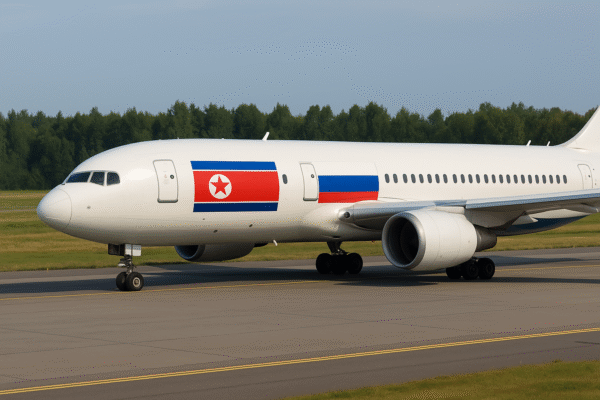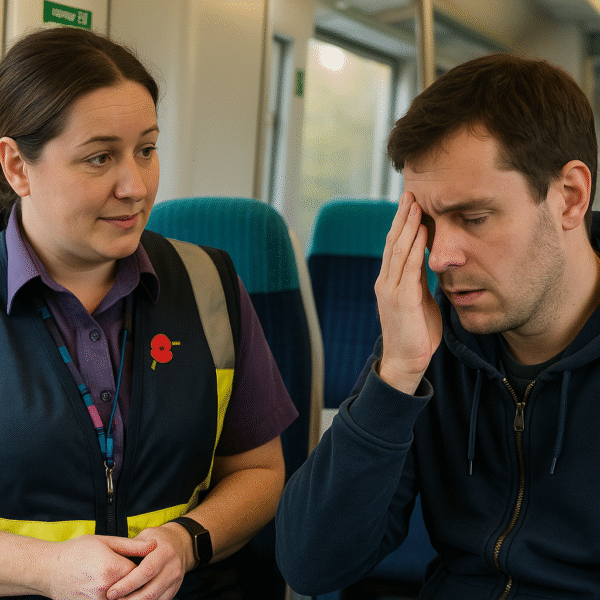East Midlands Railway (EMR) has partnered with the National Autistic Society to transform rail travel for autistic people across the UK. In a groundbreaking move towards creating more inclusive public transport, the collaboration aims to make train journeys easier, safer, and more welcoming for people on the autism spectrum and their families.
This partnership comes in response to growing public demand for better accessibility across the UK’s rail network. According to the Department for Transport (DfT), one in 100 people in the UK is autistic, and nearly half of all autistic adults have reported difficulty using public transport due to sensory challenges, anxiety, and lack of understanding from staff and fellow passengers. With this in mind, EMR’s new initiative is not just timely, but essential.
A Holistic Approach to Inclusive Rail Travel
Backed by the Department for Transport, this programme forms part of a broader initiative aimed at reducing social isolation among neurodiverse individuals. It introduces specialised staff training, communication resources, and journey planning tools to foster a more accommodating rail experience.
A key element of the initiative is the Autism Champions programme. This training course equips EMR staff with the knowledge and confidence to engage empathetically with autistic passengers. From recognising signs of sensory overload to helping someone navigate a busy platform, these champions are trained to offer tailored support and reassurance throughout the travel experience.
Philippa Cresswell, Customer Experience Director for EMR, emphasised the importance of empathy in transport services:
“We know that a small act of kindness can mean the world to someone who is autistic. It’s not just about moving people from A to B—it’s about making that journey feel safe, predictable and respectful.”
Real Impact: Human Stories Behind the Initiative
Already, passengers are noticing the positive changes. Nick, a regular traveller from Buckinghamshire to London, shared his experience of being supported by EMR guard Becky Parkhouse. Overwhelmed by sensory challenges during his journey, Nick was met with kindness and understanding.
“Becky saw I was distressed and took the time to check in on me. She made sure I didn’t miss my stop and made me feel safe. It was such a relief,” he said.
Becky responded with humility:
“Being vigilant and supporting vulnerable passengers is part of our job. I’m just glad I could help make someone’s day a little easier.”
These small gestures reflect a broader cultural shift that EMR hopes to instil throughout its network.
The Role of the National Autistic Society
As the UK’s leading charity for autistic people, the National Autistic Society plays a pivotal role in shaping the programme. Christine Flintoft-Smith, Head of Autism Accreditation and Projects, highlighted how unpredictable environments like train stations can be distressing for autistic individuals.
“Uncertainty, noise, and overcrowding can all lead to severe anxiety for autistic people. By working with transport operators like EMR, we’re helping create systems and environments where everyone can travel with confidence,” she said.
The charity is also supporting EMR in implementing Autism Friendly standards that could serve as a model for other UK transport providers. These include clearer signage, pre-travel guides, and staff trained to offer visual cues or extra guidance.
Future Plans: Building a National Model for Autism-Friendly Transport
EMR is not stopping here. The rail operator has plans to expand autism-friendly initiatives across its network, including Nottingham, Derby, and Sheffield. The long-term goal is to introduce a consistent, autism-aware travel experience on every EMR service and inspire other UK train companies to adopt similar standards.
In alignment with the UK Government’s Inclusive Transport Strategy, EMR’s ongoing improvements support the aim to create a fully accessible transport system by 2030. This includes reducing the barriers to travel for disabled and neurodivergent individuals.
Additionally, the company is exploring the development of interactive journey-planning tools designed specifically for autistic travellers, including virtual station tours and sensory-friendly route maps. Such tools would allow users to familiarise themselves with their journey in advance, easing anxiety and reducing unexpected stimuli.
A Blueprint for Inclusive Travel
This partnership marks a defining moment in the move toward an equitable public transport system. As rail operators nationwide face increasing pressure to meet the diverse needs of passengers, EMR’s initiative is being lauded as a potential national model.
By acknowledging the unique challenges faced by autistic passengers and responding with compassion and training, EMR is laying the groundwork for meaningful change. It is a step toward a future where everyone—regardless of ability or condition—can navigate public transport with dignity and ease.
If other rail providers and transport companies follow suit, the UK could soon become a global leader in inclusive travel. For passengers like Nick, and countless others across the country, these initiatives are more than policy—they’re lifelines.
For more travel news like this, keep reading Global Travel Wire



















